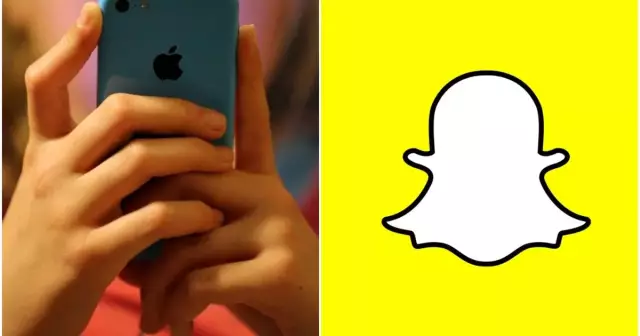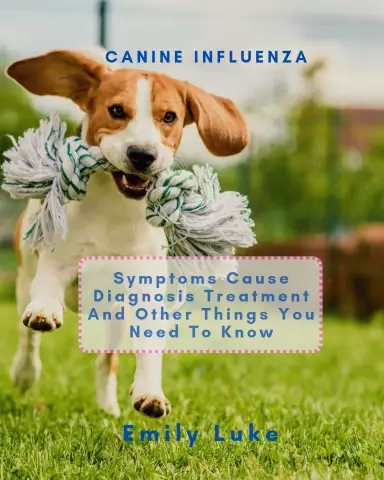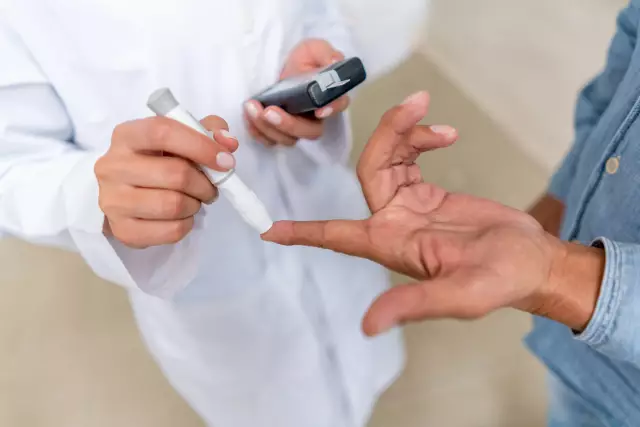- Author Rachel Wainwright wainwright@abchealthonline.com.
- Public 2023-12-15 07:39.
- Last modified 2025-11-02 20:14.
Memo to parents: when do you need to urgently call a doctor?
Children get sick 5-10 times more often than adults. Of course, experienced parents are familiar with the symptoms of most children's "sores" and ailments. However, your own knowledge is not always enough to correctly assess the situation: in case of certain complaints and symptoms, you must immediately call a doctor. After all, one of the features of the child's body is the possibility of a strong deterioration in a short time. Therefore, sometimes not only the health of the child, but also his life depends on the promptness of the parents' actions. And only a physician can accurately assess the condition of the baby and make the correct diagnosis.

When assessing the condition of a child, experienced pediatricians pay more attention to the "general condition of the child" rather than to the thermometer. Fever - a symptom, of course, alarming, but within certain limits it is only a "normal and healthy response" of the child's body to infection. Can't you comfort the child? Is he lethargic and indifferent? Can't he drink? - these are the main signals that speak of something really serious that may be happening to him.
20 symptoms requiring increased attention and prompt response from parents
- Body temperature is below 35.5 ° C or above 39 ° C.
- Body temperature does not decrease after taking antipyretic drugs and / or lasts more than 3 days.
- Unusually rapid breathing shortness of breath (for babies - more than 60 breaths per minute, for older children - more than 40 per minute).
- Difficulty breathing (heavy inhalation or exhalation), wheezing or buzzing breathing, with wheezing and / or moaning.
- Weak high-pitched or continuous crying.
- Moderate or severe retraction of the chest.
- Fever, accompanied by a significant loss of fluids (with vomiting, diarrhea) and, as a result, dehydration - "sunken" eyes, reduced urination or dry diapers, sunken fontanelle in children under one year old, no tears when crying, dry tongue.
- Pallor of the skin, with prolonged chills.
- Blue or swelling of the tongue, face, especially around the lips.
- Pulse above 140 beats / min.
- Convulsions, involuntary muscle twitching appear.
- The child loses consciousness (fainting), the children's eyes roll up and / or sideways, and their movement resembles "floating".
- Confusion of consciousness, unusual lethargy, lack of response to social signals (does not respond to words / questions, does not recognize others, poorly oriented in time and / or space.
- Unusual drowsiness and lethargy (difficult to wake up, instantly falls asleep upon waking).
- Difficulty tilting the head forward; Strong headache.
- Blood in your stool, urine, or vomit.
- Repeated vomiting, an unusual smell from the mouth appeared (for example, the smell of acetone is a sign of poisoning or a manifestation of diabetes mellitus, when the doctor's help is needed immediately).
- Diarrhea lasting more than a day.
- Pain in the abdomen that does not stop for more than 3 hours, and if the child does not even allow gentle pressure on the abdomen.
- Pain and swelling in the groin and scrotum.

All of these symptoms (one or more) should be taken very seriously. And the most important advice here - do not hesitate to contact an ambulance. Even if in doubt, call the emergency room better, tell us in detail about the baby's condition. The doctor on duty will make a decision: urgent hospitalization or it is enough to go to the clinic in the near future.
A little about ARVI, or what to do in 80% of cases
According to statistics, one of the most common reasons for referring to pediatricians is acute respiratory viral infections (ARVI). This group of diseases is distinguished by the similarity of symptoms, although it has more than 200 different viruses in its arsenal.
It is important to remember that flu and SARS are easier to prevent than to cure. And the best way to protect yourself is in advance, in September-October, to give your baby a flu shot. Also, during an epidemic, try to avoid contact with patients, enrich the diet with foods rich in vitamin C, start taking multivitamins, as well as children's drugs for the prevention of ARVI, which support the child's immunity and increase the body's resistance to viruses.
Infection and the incubation period of ARVI most often proceed without noticeable symptoms and last from 2 hours to 3 days, depending on how well the child's immunity is "trained". Gradually, from the places of primary localization (most often these are the respiratory tract), the virus enters the bloodstream and begins to actively spread throughout the body. The body spends a lot of energy on fighting it, so parents note changes in the baby's behavior: weakness, lethargy, fever. One or more other symptoms of ARVI are gradually added. This means that parents have 12 to 48 hours to stop their baby from developing the disease with the help of antiviral drugs.

To begin treatment, an exact understanding of which virus entered the body is not required. Most colds go away easier and faster if, at the first sign of poor health, you leave the baby at home, stay in bed and undergo the necessary course of treatment prescribed by a doctor. At the first symptoms of a cold and flu, it is also recommended to give your baby a safe antiviral agent. For example, the powder "Citovir-3" *, which contains no sugar. It is hypoallergenic, suitable for children from one year old and compatible with all symptomatic drugs. In general, clinical manifestations of acute respiratory diseases can persist for 3-5 days. However, in the opinion of pediatricians, taking a solution of "Citovir-3" powder significantly facilitates the course of the disease and speeds up the healing process.
* According to the data of the state register of medicines, LP-000423, registration date 2011-28-02, re-registration date 2016-23-12
There are contraindications, specialist advice is required.
Found a mistake in the text? Select it and press Ctrl + Enter.






